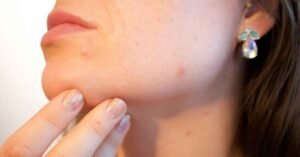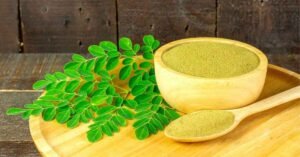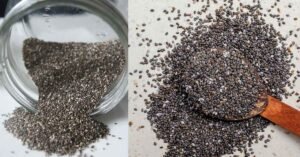
Aloe Vera oil is gaining popularity as a natural remedy for a variety of health and beauty concerns. Here I will try to explore several benefits of it, how it’s made, and ways to incorporate it into your daily routine. With its soothing properties, this oil is a must-have in your skincare and hair care arsenal.
What Is Aloe Vera Oil?
It is made by mixing aloe vera gel with a carrier oil. Common carrier oils include coconut oil, jojoba oil, and almond oil. The aloe vera plant has thick leaves filled with a gel-like substance. This gel is rich in vitamins, minerals, and antioxidants. When mixed with a carrier oil, it creates aloe vera oil. It can be easily applied to the skin and hair.
How The Oil Is Made
Making aloe vera oil at home is simple. Here’s a quick guide:
- Ingredients: Aloe vera gel (extracted from the aloe vera plant) and a carrier oil of your choice.
- Method:
- Start by cutting a few leaves from a mature aloe vera plant.
- Scoop out the gel from the leaves and place it in a blender.
- Blend the gel until smooth.
- In a clean jar, add the blended gel and pour in your chosen carrier oil.
- Mix well and store in a cool, dark place for 2-3 weeks, shaking the jar occasionally.
- After this period, strain the mixture to separate the oil from the aloe vera residue.
- Storage: Store the oil in an airtight container in a cool, dry place.
This homemade oil can be used in various beauty and health treatments.
The Skin Benefits Of Aloe Vera Oil
It is a fantastic addition to your skincare routine. Its soothing and hydrating properties make it ideal for all skin types. Here’s how it benefits the skin:
- Moisturization: It is an excellent moisturizer. It penetrates deep into the skin, providing hydration without leaving a greasy residue. It’s perfect for those with dry skin, as it helps lock in moisture, keeping the skin soft and supple.
- Soothing Irritated Skin: If you have sensitive skin, it can be a lifesaver. It helps to soothe redness, irritation, and inflammation, making it ideal for conditions like eczema, psoriasis, and rosacea.
- Healing Burns and Cuts: Aloe vera is well-known for its ability to heal minor burns and cuts. The oil can be applied to sunburns or minor wounds to speed up the healing process and reduce pain.
- Anti-Aging Properties: Rich in antioxidants like vitamins C and E, this oil can help reduce the appearance of fine lines and wrinkles. Regular use can improve skin elasticity, giving you a youthful glow.
- Acne Treatment: Aloe vera oil’s antibacterial properties make it effective in treating acne. It helps to reduce inflammation and prevents acne-causing bacteria from spreading. Plus, it doesn’t clog pores, making it safe for acne-prone skin.
The Hair Benefits Of Aloe Vera Oil

Aloe vera oil isn’t just for your skin; it’s also a powerful ally for your hair. Here’s how it can improve the health of your hair:
- Promotes Hair Growth: This oil is packed with vitamins and enzymes that nourish the scalp and promote hair growth. It helps to clear dead skin cells from the scalp, which can block hair follicles and slow down hair growth.
- Reduces Dandruff: The anti-inflammatory and antifungal properties of this oil help reduce dandruff and keep the scalp healthy. Regular use can prevent the itching and flaking associated with dandruff.
- Strengthens Hair: It can strengthen your hair, reducing breakage and split ends. It nourishes the hair shaft, making it more resilient to damage.
- Adds Shine: If your hair looks dull and lifeless, this oil can restore its natural shine. It smooths the hair cuticle, making your hair look glossy and healthy.
- Detangles Hair: It can also act as a natural detangler. Applying it to your hair makes it easier to comb through, reducing the risk of breakage.
The Health Benefits Of Aloe Vera Oil
Beyond skin and hair, this oil offers several health benefits:
- Relieves Joint Pain: The anti-inflammatory properties of aloe vera oil make it effective in reducing joint pain. Massaging the oil onto affected areas can help alleviate discomfort caused by arthritis or other inflammatory conditions.
- Boosts Immune System: This oil is rich in antioxidants, which help to strengthen the immune system. Regular use can help protect your body from infections and illnesses.
- Aids Digestion: While not as common, some people use this oil to aid digestion. When consumed in small amounts (as directed by a healthcare professional), it can help soothe the digestive tract and relieve symptoms of indigestion.
- Reduces Stress and Anxiety: The calming effects of it can help reduce stress and anxiety. Applying the oil to your temples or adding it to a warm bath can promote relaxation and improve your mood.
How to Use Aloe Vera Oil
There are several ways to incorporate it into your daily routine. Here are a few ideas:
- As a Moisturizer: Apply it directly to your skin after a shower to lock in moisture. It’s especially beneficial for dry areas like elbows, knees, and heels.
- As a Hair Treatment: Massage the oil into your scalp and hair, leave it on for 30 minutes, then wash it out with a gentle shampoo. This treatment can be done once a week for healthy, shiny hair.
- As a Massage Oil: This oil makes an excellent massage oil. Its anti-inflammatory properties can help relieve muscle tension and joint pain.
- As a Makeup Remover: It can also be used as a gentle makeup remover. Apply a small amount to a cotton pad and wipe away makeup, including stubborn eye makeup.
- In DIY Skincare: You can use this oil in homemade skincare recipes. Mix it with sugar for a gentle exfoliating scrub, or combine it with essential oils for a nourishing face mask.
Precautions When Using This Oil
While this oil is generally safe, there are a few precautions to keep in mind:
- Patch Test: Before using it on your skin, do a patch test to ensure you don’t have an allergic reaction. Apply a small amount to your inner wrist and wait 24 hours to see if any redness or irritation occurs.
- Consult a Doctor: If you’re pregnant, nursing, or have a medical condition, consult your doctor before using it, especially if you’re considering ingesting it.
- Avoid Sun Exposure: While this oil can soothe sunburn, it’s best not to apply it before going out in the sun. Some oils can increase your skin’s sensitivity to the sun, leading to sunburn.
- Use High-Quality Products: Choose high-quality, organic aloe vera oil from a reputable source. This ensures you’re getting a product free from harmful chemicals and additives.
Aloe Vera Oil vs. Aloe Vera Gel: What’s the Difference?
You might be wondering how aloe vera oil differs from aloe vera gel. Here’s a quick comparison:
- Consistency: Aloe vera gel is thicker and more water-based, making it ideal for soothing burns and sunburns. Aloe vera oil, on the other hand, is oil-based, making it better for deep moisturization and massage.
- Absorption: Aloe vera gel absorbs quickly into the skin, providing instant relief and hydration. It takes a bit longer to absorb but offers longer-lasting moisture.
- Usage: People often use aloe vera gel to treat burns, cuts, and skin irritations. This oil is more versatile. You can use it for skincare, hair care, and massages.
- Ingredients: Aloe vera gel is pure aloe, while aloe vera oil is a mixture of aloe vera and a carrier oil. The choice between the two depends on your needs and preferences.

Why You Should Include Aloe Vera Oil in Your Routine
It is a versatile and powerful natural remedy that can improve your skin, hair, and overall health. Its soothing, moisturizing, and healing properties make it a must-have in your beauty and wellness routine. Whether you’re looking to treat dry skin, promote hair growth, or relieve joint pain, aloe vera oil has something to offer. Incorporate it into your daily life, and experience the many benefits this natural elixir has to offer.
References:
- National Center for Complementary and Integrative Health. (2021). Aloe Vera. Retrieved from nccih.nih.gov
- Medical News Today. (2022). Aloe Vera: Health Benefits, Risks, and Uses. Retrieved from medicalnewstoday.com
Frequently Asked Questions (FAQs)
1. What is aloe vera oil used for?
- It is used for a variety of purposes, including moisturizing the skin, promoting hair growth, soothing burns and cuts, reducing inflammation, and alleviating joint pain. It’s also popular in DIY skincare and hair care recipes.
2. Can I apply aloe vera oil directly to my skin?
- Yes, you can apply it directly to your skin. It’s gentle and moisturizing, making it suitable for all skin types. However, if you have sensitive skin, it’s recommended to do a patch test first to avoid any potential allergic reactions.
3. Is aloe vera oil good for hair?
- Yes, it is beneficial for hair. It promotes hair growth, reduces dandruff, strengthens hair, adds shine, and can help detangle hair. Regular use can improve the overall health and appearance of your hair.
4. How do I use aloe vera oil on my hair?
- To use this oil on your hair, massage it into your scalp and hair, leave it on for about 30 minutes, and then wash it out with a gentle shampoo. This can be done once a week for the best results.
5. Can I make aloe vera oil at home?
- Yes, you can make it at home by infusing aloe vera gel with a carrier oil like coconut or almond oil. The process involves mixing the gel and oil, letting it sit for a few weeks, and then straining the mixture.
6. Is aloe vera oil the same as aloe vera gel?
- No, aloe vera oil and aloe vera gel are different. The gel is a thick, water-based substance extracted directly from the aloe vera plant, while it is made by infusing the gel with a carrier oil. They have different consistencies and uses.
7. Can aloe vera oil help with acne?
- Yes, it can help with acne due to its antibacterial and anti-inflammatory properties. It soothes the skin, reduces inflammation, and prevents the spread of acne-causing bacteria. It’s also non-comedogenic, meaning it won’t clog pores.
8. What are the side effects of aloe vera oil?
- It is generally safe for most people. However, some individuals may experience allergic reactions, such as redness or itching. It’s advisable to perform a patch test before using it widely. If you experience any adverse effects, discontinue use and consult a healthcare professional.
9. Can I use aloe vera oil on my face?
- Yes, you can use it on your face. It’s great for moisturizing, soothing irritation, and even treating acne. Apply a small amount to your face after cleansing, or mix it with your moisturizer.
10. Where can I buy aloe vera oil?
- It can be purchased at health food stores, online retailers, and some pharmacies. Look for organic, high-quality aloe vera oil from reputable brands to ensure you’re getting a pure product.














